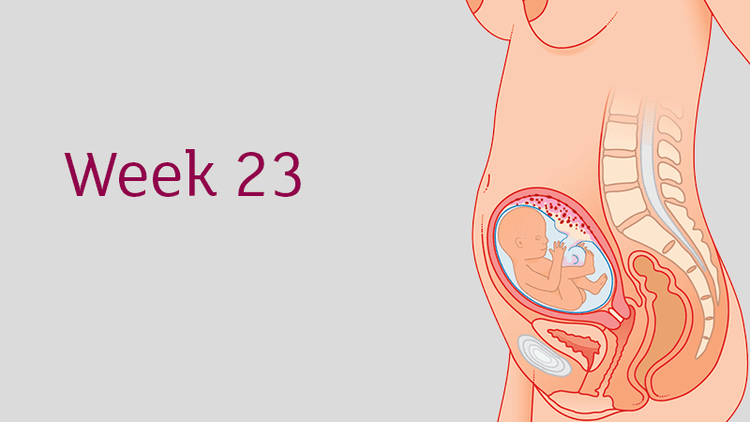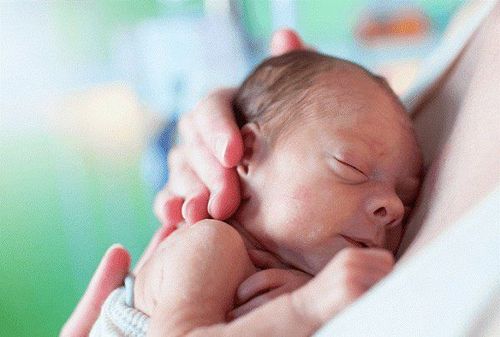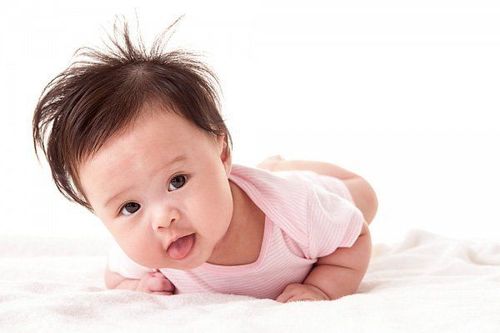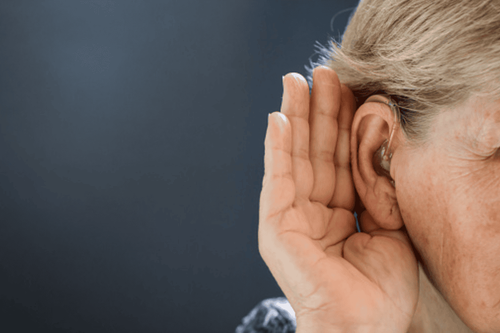This is an automatically translated article.
The article was consulted with Specialist II Chung Thi Mong Thuy - Pediatrician - Neonatologist - Department of Pediatrics - Neonatal, Vinmec Central Park International General Hospital.Newborns use their ears to receive a large amount of information about the world around them. Babies' hearing also helps them learn language and stimulates brain development. That is why it is important to detect hearing defects as early as possible.
1. In what period of infancy: when does a newborn's hearing develop?
At about 23 weeks, babies can hear sounds from the outside world, and they can sense and respond to sounds with simple movements. By week 35, all parts of the ear are fully formed, but your baby's hearing continues to be fine-tuned, even after birth.2. The development of hearing of the baby after birth
Right from birth, babies have a sense of voice, especially high pitches. Children will respond to familiar sounds such as their parents' chatter and may be startled by loud or unexpected noises.Each child responds to sounds differently. For example, a more sensitive baby may dance to small noises, while a calmer baby may hear more sounds when striding.
By about 2 months of age, most babies are silent when they hear familiar voices and make vowels like ohh. Don't worry if your child occasionally looks away when you're talking or reading to him, but tell your doctor right away if he doesn't seem to respond to your voice or is startled by sounds. large from the external environment.
At around 4 months of age, infants begin to search for sources of sounds, and by 6 months of age, infants attempt to imitate sounds. By 8 months, they babble and respond to changes in their voice. By your baby's first birthday, she'll likely say single words like "ma-ma" and "da-da" and respond to her own name, and her hearing continues to develop until about 12 years old.

Em bé của bạn có thể nghe thấy âm thanh từ thế giới bên ngoài ngay khi bạn đang mang thai được khoảng 23 tuần
3. The role of parents when developing children's hearing
Things parents can do to protect and develop children's hearing:Hazardous items keep out of reach of children such as sharp objects Prevent ear infections, give children vaccinations for Hemophilus, pneumococcal... Protect children from loud, prolonged noises. A general rule of thumb is that the noise level should be low enough for the child to feel comfortable talking. Expose children to a variety of sounds. Regularly talk and read books, play music to your baby, starting from birth. In fact, changing the pitch of your voice, using accents, singing, and pronunciation will make the sonic bond between parent and baby much more stimulating. Plus, the more parents talk and read to their children, the more sounds and words children learn when they're ready to talk.

Hãy nói chuyện với trẻ ngay từ khi trẻ mới sinh
4. Warning signs to pay attention to
Most babies have excellent hearing, but a few have problems, especially if the baby is born too preterm or is hypoxic or has a severe infection at birth... Newborns with a family history of Siblings with congenital hearing loss are more likely to have hearing loss.However, parents and caregivers are often the first to realize that something is wrong with their newborn's hearing. Babies can fall asleep right away even though the phone rings and the dog barks, that's completely normal. Newborns need sleep, and if at times, they can't seem to hear you, they may be tired or distracted. But if it happens again and again, the child should be checked by a doctor. So let your child's doctor know immediately if you notice any warning signs of decreased hearing loss. . You may be referred to an audiologist (a hearing specialist) for a more comprehensive evaluation.
Children's hearing problems should be detected as early as possible. According to research, giving hearing aids to babies before they are 3 months old will significantly improve speech and language development.

Các vấn đề về thính giác của trẻ nên được phát hiện càng sớm càng tốt
For children to be healthy and develop well, it is necessary to have a nutritious diet in terms of quantity and quality balance. If children are not provided with adequate and balanced nutrients, it will lead to diseases of excess or lack of nutrients, which adversely affect the comprehensive development of children in terms of physical, mental and motor skills.
Parents should supplement their children with supportive products containing lysine, essential micro-minerals and vitamins such as zinc, chromium, selenium, and B vitamins to help fully meet their child's nutritional needs. At the same time, these essential vitamins also support digestion, enhance nutrient absorption, help improve anorexia, and help children eat well.
Parents can learn more:
Signs of zinc deficiency in children
Micronutrient deficiency and failure to gain weight in children
Please regularly visit Vinmec.com website and update useful information to take care of your child. Take care of the baby and the whole family.
Reference source: babycenter.com














